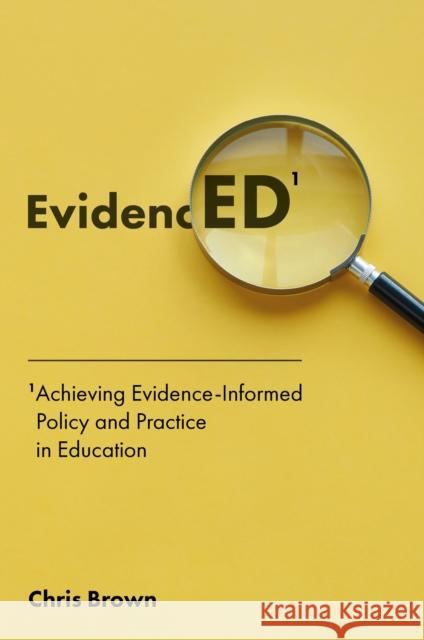Achieving Evidence-Informed Policy and Practice in Education: Evidenced » książka
Achieving Evidence-Informed Policy and Practice in Education: Evidenced
ISBN-13: 9781787436411 / Angielski / Twarda / 2017 / 216 str.
The potential for research evidence to improve educational policy and practice is immense. Yet internationally, research used by teachers and governments is currently sporadic rather than systematic. In response, this book brings together seven chapters that encompass a range of research projects and ideas in relation to evidence-informed policy and practice (EIPP) in education. These projects and ideas all share a single overarching purpose: providing insight into how EIPP in education can be achieved.
Underpinning each chapter is the notion that the world is complex. If we are to introduce change in any meaningful way into it, we therefore have to understand and respond to this complexity. This means then that we cannot simply assume that, because it seems rational or common sense for teachers and policy-makers to use research to help improve their decision making or acts of praxis, that they will do so.
Correspondingly, the book represents a holistic journey of discovery and experimentation: of an engagement with the work of thinkers and authors from Eco to Flyvbjerg, via Habermas, Foucault and Aristotle; of ideas ranging from phronesis to trust and social relations; and with diverse research methodologies, including social network analysis and decision tree predictive modelling.
The result is both descriptive and prescriptive: as well as outlining the research and its findings, practical suggestions and strategies for achieving evidence use both in educational policy and practice are provided throughout.











